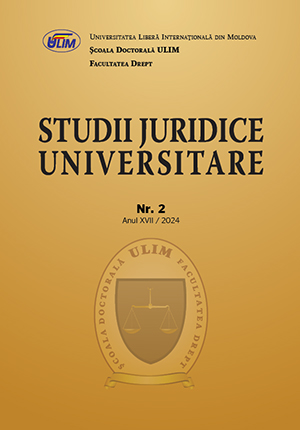Testul Сurții Europene a Drepturilor Omului aplicat în contextul principiului legalității incriminării și pedepsei
The Test Applied by the European Courts of Human Rights in the Context of the Principle of Legality of the Crime and Punishment
Author(s): Gheorghe ReniţăSubject(s): Law, Constitution, Jurisprudence, Criminal Law, Human Rights and Humanitarian Law, EU-Legislation
Published by: Universitatea Liberă Internațională din Moldova
Keywords: crime; punishment; criminal law; quality of law; predictability of law; proportionality;
Summary/Abstract: When the European Court of Human Rights finds an interference with a right guaranteed by the European Convention on Human Rights, the European Court checks, first of all, whether the interference is provided for by law. If the answer is yes, then the European Court of Human Rights analyzes whether the interference pursues one or more legitimate aims. Again, if the answer is yes, ultimately the European Court of Human Rights checks whether the interference is necessary in a democratic society. This analysis algorithm is also called “triple test”. These steps are followed in most cases. However, this study shows that in the context of Article 7 of the European Convention on Human Rights (article which guarantees the principle of the legality of the crime and the legality of the punishment), the Court of Strasbourg applies, in essence, the test of the quality of the law, with some particularities.
Journal: Studii Juridice Universitare
- Issue Year: 2024
- Issue No: 2
- Page Range: 58-72
- Page Count: 15
- Language: Romanian

